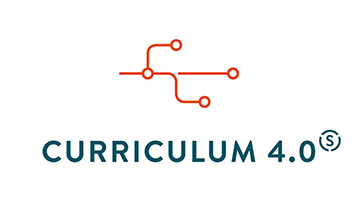Education and the Book: Paradigms for Knowledge at a Time of Digitalisierung
Gastvortrag, 08. Juni 2021
Englisch-sprachiger Vortrag von Prof. Dr. Norm Friesen (Boise State University in Idaho, USA) über die Bedeutung des Buchs als Bedingung für Erkenntnis und seine Bedeutung für Lernprozesse.
Auf einen Blick
Education and the Book: Paradigms for Knowledge at a Time of Digitalisierung
GastvortragWann?
- 08. Juni 2021
- 17.30 Uhr bis 18.30 Uhr
-
in meinen Kalender übertragen
BEGIN:VCALENDAR VERSION:2.0 PRODID:-//hacksw/handcal//NONSGML v1.0//EN CALSCALE:GREGORIAN BEGIN:VTIMEZONE TZID:EUROPE/BERLIN BEGIN:DAYLIGHT TZOFFSETFROM:+0100 TZOFFSETTO:+0200 TZNAME:CEST DTSTART:19700329T020000 RRULE:FREQ=YEARLY;BYMONTH=3;BYDAY=-1SU END:DAYLIGHT BEGIN:STANDARD TZOFFSETFROM:+0200 TZOFFSETTO:+0100 TZNAME:CET DTSTART:19701025T030000 RRULE:FREQ=YEARLY;BYMONTH=10;BYDAY=-1SU END:STANDARD END:VTIMEZONE BEGIN:VEVENT LOCATION:Zoom-Meeting Meeting-ID: 835 8088 9659 Kenncode: 319544 Zoom-Meeting beitreten: DESCRIPTION: SUMMARY:Education and the Book: Paradigms for Knowledge at a Time of Digitalisierung DTSTART;TZID=EUROPE/BERLIN:20210608T173000 DTEND;TZID=EUROPE/BERLIN:20210608T183000 DTSTAMP:20260219T202615 UID:699763d7597ea END:VEVENT END:VCALENDAR
Wo?
Zoom-Meeting
Meeting-ID: 835 8088 9659
Kenncode: 319544
Zoom-Meeting beitreten:
https://th-koeln.zoom.us/j/83580889659
Veranstaltungsreihe
Kolloquium-4.0
ReferentIn
Norm Friesen ist Außerordentlicher Professor im Fachbereich Educational Technology am College of Education der Boise State University in Idaho, USA. Seit 1995 forscht Dr. Friesen zu webgestützten Technologien im Bildungsbereich und entwickelt diese weiter. Er ist der Autor mehrere Handbücher zum effektiven Umgang mit Online-Lerninhalten und der Umsetzung von technischen Standards ebendieser in diesem Bereich. https://www.normfriesen.info
Anmeldung
Nicht erforderlich
Weitere Informationen
Bei dem Kolloquium 4.0 werden die Vorträge aufgezeichnet, aber nicht die anschließenden Diskussionen.
Education and the Book: Paradigms for Knowledge at a Time of Digitalisierung
In an era of digitalization, the form of the book, the codex, remains a touchstone, if not an “objet de résistance” (e.g., Doueihi 2009). It is still the standard by which e-readers and “immersive” reading are evaluated; it provides for greater reader comprehension than its digital equivalents; and it opens up a tangible space of order and stability in an uncertain world. Nonetheless, scholars have for some time concluded that “the screen… [has] surreptitiously replaced the page, letters and reading” (Illich, 1993); they speak elegiacally of “a sense of an ending” (Eisenstein 2011), and characterize our current era as “the late age of print” (Bolter, 1991). Our current condition thus provides us with an opportunity to closely examine what the book actually is, what its meaning and cultures actually have been and what they could become. To take up this opportunity is to recognize that the book has for centuries if not millennia served as nothing less than the “concrete form” of “the Western episteme”—the conditions for the possibility of knowledge itself. The book’s physical nature, the habits and practices associated with its use and the way that these are acquired, in other words, have together constituted the paradigm for knowing, for knowledge and for learning. The significance of the gradual and ongoing dissolution of this paradigm for education, while not widely discussed, is enormous. This presentation examines some of the varying meanings of the book as a precondition for knowledge and considers what its gradual passing might mean specifically for the school.
References:
- Bolter, D.J. (1991). Writing space: The computer, hypertext and the history of writing. Laurence Erlbaum.
- Doueihi, M. (2007). Les cahiers de la librairie, Qu’est-ce qu’un livre aujourd’hui? 7, 2009.
- Eisenstein, E. (2011). Divine art, infernal machine. The reception of printing in the West from first impressions to the sense of an ending. University of Pennsylvania Press.
- Illich, I. (1993). In the vineyard of the text: A commentary to Hugh's Didascalicon. University of Chicago Press.
- Kittler, F. (2015). Baggersee: Frühe Schriften aus dem Nachlass. Paderborn: Wilhelm Fink.

